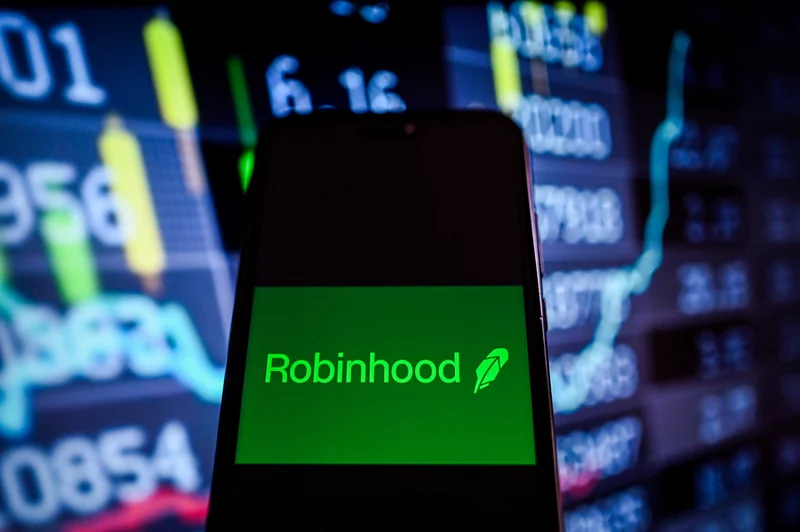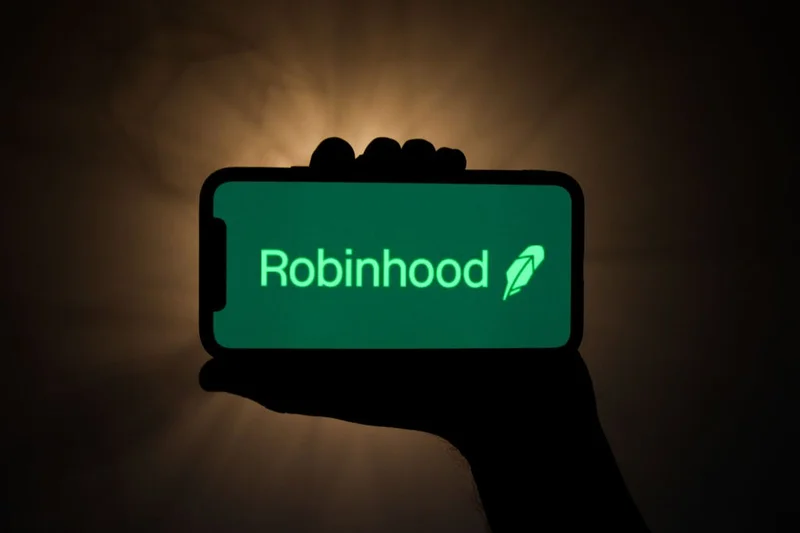Article Directory
So, you’re telling me Robinhood is a “serious” company now?
Give me a break.
I’ve been watching the Robinhood stock ticker all year, and I gotta say, it’s one of the greatest works of fiction I’ve ever seen. The stock is up 288% in Robinhood 2025. It just got its golden ticket into the S&P 500, forcing every index fund from here to Delaware to buy in. The digital confetti is falling, the headlines are glowing, and Wall Street is patting itself on the back for discovering this plucky little innovator.
It’s all a beautifully constructed illusion. A magic trick. And I feel like I’m the only one in the audience screaming that I can see the wires.
This is the same company that turned the stock market into a video game for bored people during the pandemic. The same hub for the meme stock insanity that blew up in everyone’s faces. And now, because a committee decided to add it to a list, we’re all supposed to put on a tie and pretend it’s a blue-chip institution? Is anyone actually looking under the hood here, or are we all just mesmerized by the shiny new paint job?
The Great S&P 500 Charade
Let’s be brutally honest about the S&P 500 inclusion. It’s not a badge of honor; it’s a mechanical trigger. The moment Robinhood (HOOD) was added, a tidal wave of passive investment cash was forced to buy the stock. It’s an instant, artificial pump. The stock’s price-to-sales ratio is now sitting at a dizzying 37, which is 3.6 times its long-term average. That’s not a valuation; that’s a cry for help.

This is a company whose total transaction revenue has dropped for two straight quarters. Its crypto revenue—the rocket fuel for its last big surge—fell off a cliff, down 55% in the second quarter. So the business is slowing, but the stock is going to the moon. Makes perfect sense, right? It's like watching a car with a sputtering engine somehow win a drag race. You know something is fundamentally wrong.
It’s a bad look. No, 'bad' doesn't cover it—this is a five-alarm dumpster fire of market logic. We’re celebrating a company’s stock price, not its business. We’re cheering for the marketing campaign, not the product. What happens when the forced buying from index funds dries up and people have to make a decision based on, you know, actual performance?
Same Casino, Different Table Games
I thought maybe, just maybe, they’d try to pivot. Become a more mature platform, something closer to a Schwab or a Fidelity. But what’s their big new move? A partnership with Kalshi to launch prediction markets on NFL games. They’re not moving away from the casino model; they’re building a damn sportsbook in the lobby.
It's the same playbook all over again. Remember 2021? Crypto revenue exploded by over 4,500%. The Robinhood app was minting money from people gambling on Bitcoin, Robinhood's lifeblood. A year later, that revenue had crashed by 75%, and the stock collapsed over 90% from its peak. They’ve shown us exactly who they are: a company whose fortunes are tied to the most volatile, speculative corners of the market. And we’re supposed to believe this time is different?
They're basicly selling lottery tickets with a slicker interface. First it was meme stocks, then it was crypto, and now it's betting on whether the Cowboys will cover the spread. It’s all the same thing—a hunt for the dopamine hit of a quick win. It’s not Robinhood investing; it's Robinhood trading as a form of entertainment. And while that might be a viable business model for a while, does it really belong in the same index as companies that, you know, build things and provide essential services? Then again, maybe I'm the crazy one for still believing that matters.
This all feels so familiar, it’s exhausting. The hype, the momentum, the complete and utter disregard for the numbers staring us in the face. They're selling the dream of easy money, and for now... the market is buying it hook, line, and sinker. I just wonder how many people will be left holding an empty Robinhood account when the music finally stops.
This Whole Thing Is A Joke
Look, Robinhood hasn’t fundamentally changed. It’s the same speculative engine it’s always been, just wearing a fancy S&P 500 suit. The company isn’t a sign of a healthy market; it’s a symptom of a broken one—a market that rewards hype over substance, momentum over fundamentals, and gambling over investing. The stock is soaring on a cloud of forced fund inflows and a prayer, not on a solid business. This isn’t a comeback story. It’s just the part in the horror movie where everyone thinks the monster is dead right before it jumps out for one last scare. And you know who gets hurt in that scene? The people who thought it was safe to go back in the water.

